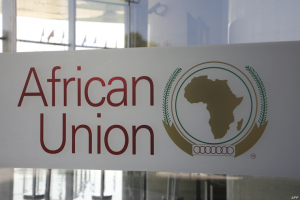South Africa: Disability Organisation Loses Constantia Land Claim Battle

South African Riding for the Disabled Association will have to vacate property
The South African Riding for the Disabled Association (SARDA) has, since the 1980s, offered horse-riding therapy to disabled people at a property in Constantia.
But the government-owned property was allocated to the Sadien family by the Land Court in 2013.
The family had, in the 1960s, been dispossessed of a different piece of land in Constantia under the Group Areas Act.
SARDA has lost an attempt to intervene in the land restitution process and must now vacate the land. It may seek compensation for the improvements it has made to the property.
An organisation based in Constantia that offers horse-riding therapy to disabled people has lost a 15-year court battle to hold onto the land it has used since the 1980s.
The prime property is owned by the national government and was awarded by the Land Court to the Sadien family as part of a land restitution claim in 2013. It is not the actual piece of land the family was dispossessed of under the Group Areas Act in the 1960s, but was allocated to the family by the court as an alternative because the original land was no longer suitable.
But the South African Riding for the Disabled Association (SARDA), which leases part of the land from the government, believed the Land Court’s decision was wrong. The court had held, at the time, that the land was vacant when it was in fact being used by SARDA.
SARDA also believed that a subsequent Constitutional Court ruling, which declared that the organisation had no standing to intervene in the matter, was wrong.
In its latest application to the apex court, SARDA wanted to rectify this “mistake” and sought an order that it be allowed to intervene in the restitution process.
But the court has refused to hear this appeal and has ordered that SARDA must pay the costs, although the court limited the costs, given that SARDA is a non-profit organisation that does valuable work.
The judgment means that SARDA must vacate the land and can only pursue compensation for the improvements it has made on the property.
Read the judgment here.
At the time of the Land Court ruling, SARDA claimed to have a “tacit” agreement with the national government, was paying a rental of R2,379 a month and had made improvements valued at more than R3-million on the site in question.
In the recent unanimous judgment, penned by Justice Jody Kollapen, the court said the history of the matter centred on the dispossession of land in Constantia, which had been owned by the forebearers of the Sadien family.
In 1961, under the Group Areas Act, the land was proclaimed as a “white group area”. The land was taken away from the Sadien family, and they were paid roughly half of what it was worth by the state.
The family then instituted a land claim. Initially, the land leased by SARDA was not included in the final order of restitution by the Land Court. But this was later amended to include that portion, without the knowledge of SARDA.
SARDA applied for leave to intervene, seeking to vary the order or have it set aside. This was rejected.
The matter then came before the Constitutional Court in 2017, which ruled that while SARDA, as a lawful occupier of state-owned land, had a direct and substantial interest to intervene in the restoration process, this was limited only to compensation and not to the transfer of the land to the Sadien family.
In the most recent litigation, SARDA still contended that it had standing to intervene in the 2013 Land Court ruling beyond the compensation issue. And, it argued, the earlier Constitutional Court ruling was “interlocutary” (temporary) and capable of variation by the Land Court.
The Land Claims Commission opposed the application, saying SARDA was effectively requesting a rehearing of the 2017 matter. The Sadien family agreed, arguing that the interests of justice necessitated the finality of the matter.
In the written ruling, Justice Kollapen said it was clear that the 2017 order was not interlocutory but “final and definitive in effect”. That order limited SARDA’s standing only to the compensation proceedings and “precluded any other relief SARDA would be minded to seek in the restitution proceedings”.
“It could never be suggested that another court, seized with the question of SARDA’s standing, could alter this court’s finding after it had pronounced on it,” he said.
Kollapen said that, during the hearing of the matter, this had eventually been conceded by SARDA. It has also been conceded that SARDA had not applied for a rescission of the 2017 order.
“Like all things in life, like the best of times and the worst of times, litigation must, at some point, come to an end. The Constitutional Court, as the highest court in the Republic, is constitutionally enjoined to act as the final arbiter in litigation,” he said.
“In terms of this court’s 2017 judgment, SARDA has no interest in the Sadien family’s land claim and transfer of the land other than to secure just and equitable compensation. Not only was the lower court bound by this finding, so was SARDA.”
Justice Kollapen said this was not one of those instances where the court, as a general rule, should entertain the merits of the matter, despite a lack of standing.
“In fact, in this matter, the interests of justice cry out for finality.”
He said the restitution programme had faced many challenges, and the constitutional promise of restitution remained unfulfilled for many.
“Against this background, this court must stand fast in its commitment to restitution’s potential to transform South African society.”
“Addressing past injustices and providing equitable redress inherently requires finality. It is not for lawful occupiers of state-owned land to continually obstruct the restitution process through unending litigation.”
Justice Kollapen said that more than 60 years after the Sadien family were dispossessed of their land, and 13 years after the original restitution award, the family had still not been able to regain possession of that which was owed to them.
“The family has waited long enough to receive the right in land to which they are legally entitled. SARDA’s continuous attempts to challenge the 2013 (Land Court) order, though it has been settled for over eight years, cannot be overlooked in light of the injustices faced by the Sadien family and the significance of restitution.”
On the issue of costs, Justice Kollapen said SARDA had “impermissibly” sought to relitigate the issue.
But given that it is a non-profit organisation which did important work to assist the disability community, the court would limit the costs, excluding the costs of two counsel engaged by the respondents.
By GroundUp.



